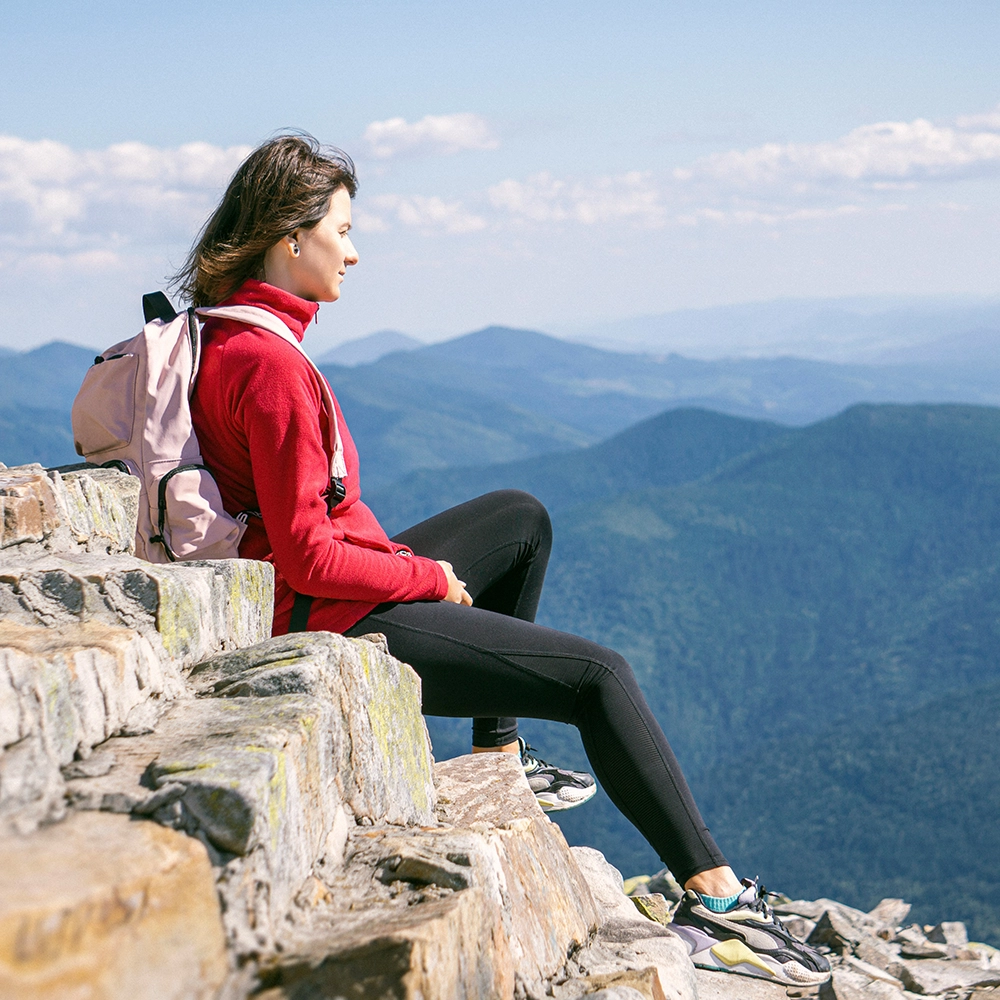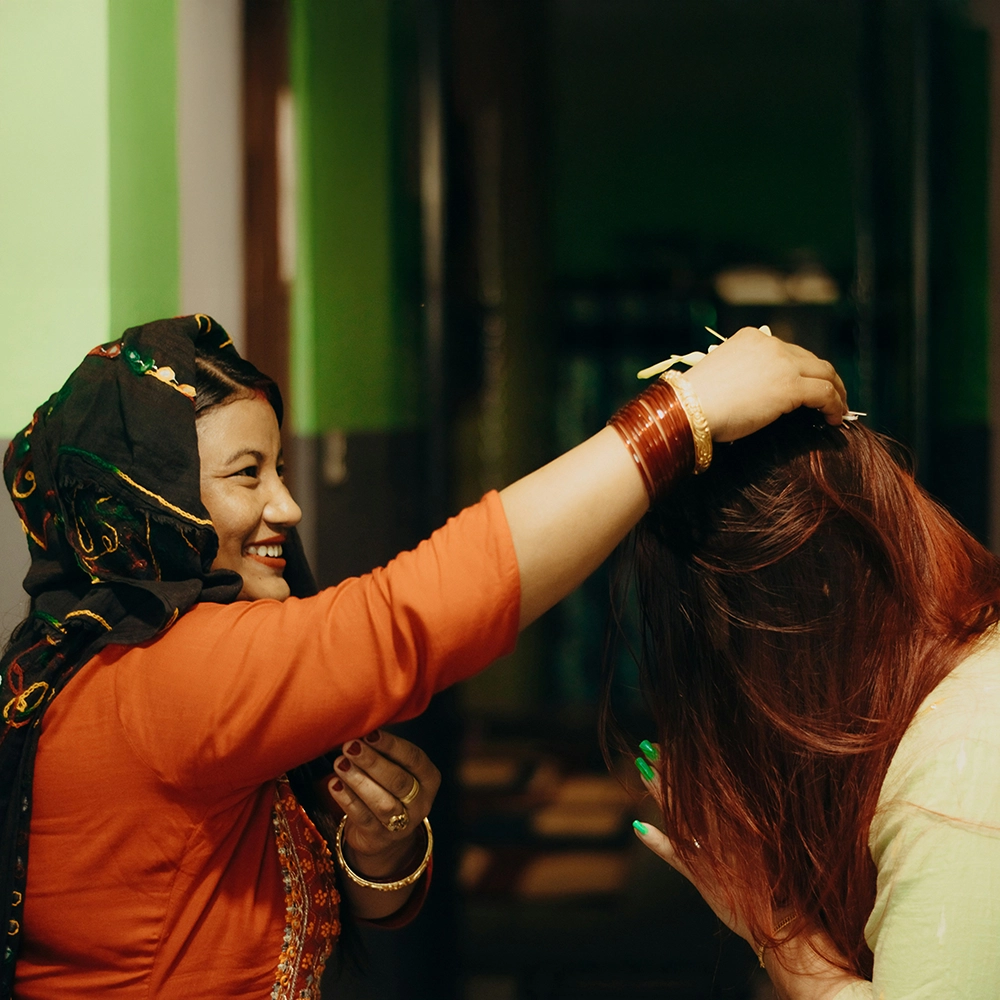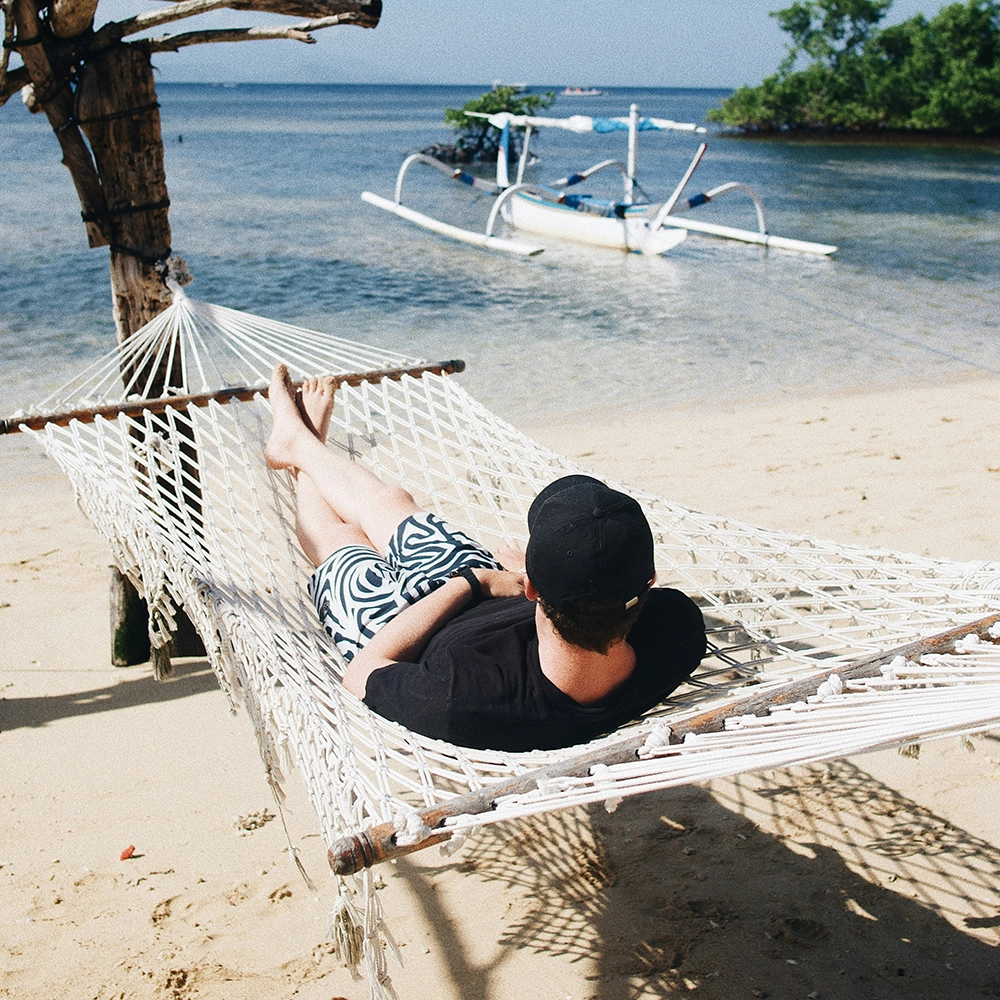Everyone has a story. Some are epic tales from exotic adventures. Others are warnings of what not to do when you travel, inevitably learned the hard way.
We polled travelers who have struck out across the world to get their best cautionary tales, advice, and lessons. From the deeply philosophical to the rationally practical, here are some of our favorites.
The Philosophical
1. Busyness doesn’t always add value.
Italy has “dolce far niente,” or the sweetness of doing nothing. Spain has “la prisa mata,” a phrase that means rushing kills.
Seven Corners study abroad specialist Grace Lower learned the art of the siesta during her semester in Spain. A self-proclaimed Type A personality, Grace’s time abroad taught her the importance of slowing down.
“In Spain, I found myself surrounded by people who valued play over work and relationships over revenue,” she said. “This shift in perspective helped me realize that my stress levels were not a measure of my importance, and that relaxation is a necessary part of a well-ordered life.”
2. Don’t sweat the details.
Travel seldom goes according to plan, but as with any challenge in life, you have two choices. You can let frustration define your experience, or you can roll with the obstacles as they come.
3. Perfection is not the goal.
Like Grace, Stephanie R. studied in Spain. Her biggest lesson was to not put so much pressure on herself. “It’s like college,” she says. “Everyone tells you that it’s the most amazing experience, so if you don’t feel that way at the end, you might feel like a failure. Even if you don’t enjoy parts of it, you can still have some really valuable take-aways.”
Instead of chasing illusive perfection, seek out smaller but equally important lessons like self-reliance, a stronger sense of confidence, improved language skills, or learning to be present and enjoy the moment.
4. You are not normal.
As you explore, you’re exposed to new cultural attitudes, religious beliefs, ideas, and realities. Moreover, travel can be a powerful reminder of privilege. Even when you’re traveling on a budget, you still have enough money to travel, making you wealthier than most of the world’s population.
When you meet people who live differently, it can be an eye-opening reminder that your normal is not the universal standard. And that’s okay.
5. It’s OK to admit you don’t know.
Sometimes the appeal of travel is that everything is different. When you go beyond the familiar, you’re bound to find situations you just don’t understand.
Whether you’re confused by public transportation, hesitant about ordering food, or uncertain about etiquette, it’s okay to speak up and admit you don’t know. You might be surprised by how easy it is to find someone willing and able to help you make sense of your surroundings.
6. You can always find kindness.
“On my first night in Paris,” recalls Grace, “I was nearly pickpocketed while riding the Metro.”
The story ends well with a businessman spotting the would-be thief before they could make off with Grace’s belongings.
“Although I was embarrassed about my careless mistake, I was touched by the businessman’s willingness to stand up for a wide-eyed tourist like me. While the world might seem cold and unfriendly, travel gives you glimpses of kindness and joy that make things seem a little bit brighter.”
The Practical
1. Public bathrooms are tricky ... and probably sticky.
Not all countries make it easy to find public restrooms. And if you’re lucky enough to find one, be prepared for varying levels of cleanliness.
“Public bathrooms are never pleasant, but when you’re abroad, there’s a good chance that you’ll find an astonishingly icky one,” says Kallie Y. after traveling in China. “To make the best of an unpleasant experience, you’ll want to come prepared. Carry some hand sanitizer and extra toilet paper in your travel bag.”
2. Clean socks make you feel good.
We’ve gotten this tip many times, including from frequent Seven Corners blogger Luke Armstrong. In this case, Damik L. came back from Morocco praising the value of clean socks if you’re doing long-haul travel.
“Changing out of stinky socks into clean ones is very refreshing!” he says.
3. Snacks make you feel better.
“Always keep some snacks handy. There’s nothing better for morale than having a small bite to eat.” El L., who studied abroad in Switzerland, says that onigiri is surprisingly good travel food. But if that’s not on hand, try fruit snacks, nuts, and jerky.
4. A little language goes a long way.
We’ve said it before, and we’ll say it again. Learn a bit of the language wherever you’re going. You don’t need to be fluent, but having a basic understanding can go a long way toward making your life easier and ingratiating yourself with the locals.
“If you don’t have a strong command of the language,” says Rachel C., whose travels took her to Madagascar, “make sure you find a trusted guide to help you stay safe. While I had a great time abroad, that Malagasy language barrier made things pretty challenging.”
5. Respect and curiosity go even farther.
It’s impossible not to compare what you experience abroad with your experiences at home. Just remember to keep everything within the cultural context and try not to pass judgement just because it’s different.
“I visited the black market in the Philippines, where you could actually buy curses and hexes to cast on other people,” says Amanda L. “My travel companions and I initially laughed about it, but we quickly learned that folk magic is a part of the broader Filipino culture. Even if you don’t fully understand something, be respectful and stay curious.”
6. Setting boundaries, even when traveling abroad, is OK.
While you’re bound to be pushed outside your comfort zone when traveling abroad, it’s also okay to set some boundaries, as Shelby N. learned while traveling in Germany.
“When I first came to Germany, I didn’t know anyone nor did I know the social standards, so I tried to be as easy-going and open-minded as I could,” she remembers. “But because of that, there were times when I felt uncomfortable and out of place, and I didn’t speak up. Looking back, I should have put more trust in my intuition and my values from the beginning.”
7. Cutting costs doesn’t always pay off.
It’s okay to spend a little extra money for the sake of comfort and convenience. That could mean springing for the more reliable airline, a hotel in a safer neighborhood, or luggage with wheels that roll straight so you don’t have to drag it around like a tantrum-throwing toddler.
One traveler we spoke to — we'll call him Brian — learned this lesson the hard way. Instead of splurging on a sleeper car for an overnight train ride from Italy to Munich, he and his friend “saved money” by getting tickets for regular seats.
Expecting to still sleep on the ride and arrive refreshed, they instead were stuck on a late-arriving, overheated train, constantly awakened by border agents checking passports.
“Sleep was nearly impossible,” he says. “Needless to say, we were totally exhausted and cranky when we got to Munich.”
8. You can prepare for the unknown.
It sounds like an oxymoron; how can you plan for something you don’t know will happen? But good preparation can help you recover quickly when you encounter the unexpected.
You don’t predict if your trip will get delayed, but you can avoid the worst of the domino effect if you plan well. For example, carry extra medication with you so you don’t run out before you get home. There’s no reason for a mere inconvenience to turn into an emergency because you ran out of a prescription.
Also, be mindful of weather when booking airfare and other travel arrangements. If there’s a good chance of a severe storm, like during snowy winters or hurricane season, consider buying travel insurance to protect your money. You might also book with an airline with a reputation for taking good care of its impacted passengers and fly early in the morning so you have more time to recover from delays.
Write down important phone numbers and keep them in a safe place in case your phone is lost or the battery dies.
Have a basic understanding of what to do if your passport is lost or stolen. Knowing the first step to replacing a passport can help you avoid panic.
Simple steps like these go a long way toward preparing for the unexpected.
The Prepared
You can never be too prepared, but you can never be fully prepared, either. As you seek that balance, turn to the experts who have been there before.
Check out the Seven Corners blog for the best travel tips and tricks. If you’re looking for an easy way to be prepared when trip happens, use our quick quote tool to find the right plan for your adventure.




